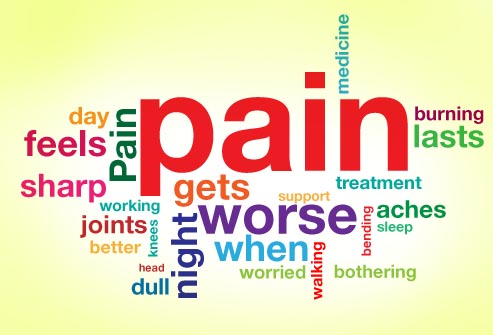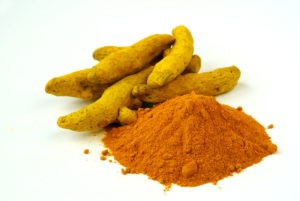
Diagnosed with Cancer? Your two greatest challenges are understanding cancer and understanding possible side effects from chemo and radiation. Knowledge is Power!
Learn about conventional, complementary, and integrative therapies.
Dealing with treatment side effects? Learn about evidence-based therapies to alleviate your symptoms.
Click the orange button to the right to learn more.
- You are here:
- Home »
- Blog »
- Healthy Living Products »
- Curcumin Reduces Premenstrual Syndrome (PMS) Symptoms
Curcumin Reduces Premenstrual Syndrome (PMS) Symptoms

“Results showed that curcumin was more effective than placebo in significantly reducing PMS symptoms over the three-month period”
I have never experienced PMS symptoms. I’m writing this post because I think curcumin and omega-3 fatty acids are remarkable supplements that can reduce PMS symptoms. Please read the two studies linked and excerpted below.
The study linked and excerpted below cites the ability of curcumin to reduce PMS symptoms. Curcumin has been shown to kill cancer, prevent arthritis pain, and fights Alzheimer’s disease. The second study cites the ability of omega-3 supplementation to moderate the emotional side effects of PMS symptoms.
I am a long-term survivor of an incurable blood cancer called multiple myeloma. I have been taking curcumin and omega-3 fatty acids for years.
I take Life Extension Foundation’s brand of curcumin called SuperBio Curcumin. This brand highly absorbable has been evaluated and approved by Consumerlab.com. An independent testing service.
For information on managing cancer, scroll down the page, past a question and I will reply ASAP.
thank you,
David Emerson
- Cancer Survivor
- Cancer Coach
- Director PeopleBeatingCancr
CURCUMIN FOR PMS
“Seventy females were recruited between the ages of 18-34, with consistent 21-35 day cycles. They were also on no medications, reported no alcohol or tobacco consumption, and no recent life stresses within the last three months. They were classified as having premenstrual syndrome (PMS) for the purposes of the study if they confirmed five out of 19 symptoms under the DSM-IV criteria for PMS. DSM-IV criteria symptoms were classified in three different categories of mood, behavioural, and physical symptoms. The symptoms were then rated based on their severity of either absent, mild, moderate, or severe an in relation to activities of daily living (ADLs)…
Control data was taken retrospectively from the previous two months of cycles and then the participants were followed for three cycles. The experimental group received 100mg every 12 hours of curcumin, while the control group received placebo at the same intervals. The supplementation started seven days before the projected start date of the cycle, and for three days after the onset of menstrual bleeding.
Results showed that curcumin was more effective than placebo in significantly reducing PMS symptoms over the three-month period. It is suggested then that curcumin supplementation could be an effective method for reducing PMS symptoms and should be considered in treatment regimes…”
Evaluation of the effect of omega-3 fatty acids in the treatment of premenstrual syndrome: “a pilot trial”
“Introduction: Premenstrual syndrome (PMS) refers to a cyclic appearance of somatic and psychiatric symptoms that affect some women. Finding an effective and safe method for the treatment of PMS has always been a serious concern, because approximately 40% of women report PMS, and in 2-10% of cases it is severe enough to affect their life style and job.
Objective: The purpose of the present study is to evaluate the effect of omega-3 fatty acids on the treatment of PMS.
Method: A randomized double blind controlled trial was performed on 184 eligible women. The eligible women were randomly assigned into two groups. The number of women who have finalized the study with us was 124. In the case group (omega-3 group = group A, n = 70), omega-3 in an amount of 2 g was prescribed for a one per day basis on a single dosage (two 1 g pearls), and in the control group (placebo group = group B, n = 69) 2 placebo soft gel, which were completely similar to omega-3 soft gels, were prescribed. The severity and duration of each of the symptoms were compared in both groups 1.5 and 3 months after the beginning of treatment.
Results: There were no significant differences between the two groups according to age, BMI, level of education, and the severity and duration of primary symptoms. After 45 days from starting omega-3, the mean severity of
- depression (P = 0.03),
- anxiety (P = 0.02),
- lack of concentration (P = 0.03)
- and bloating (P = 0.02)
in the case group, were all significantly lower than in the control group. The duration of depression (P = 0.04) and bloating (P = 0.031) in the case group were less than in the control group. After 90 days from starting the treatment, the mean severity of depression (P = 0.007), anxiety (P = 0.004), lack of concentration (P = 0.009), bloating (P = 0.004), nervousness (P = 0.01) and the duration of depression (P = 0.01), nervousness (P = 0.02), anxiety (P = 0.03), lack of concentration (P = 0.02), bloating (P = 0.004), headache (P = 0.04) and breast tenderness (P = 0.02) were all lower in the case group.
Conclusion: It appears that omega-3 fatty acids may reduce the psychiatric symptoms of PMS including depression, nervousness, anxiety, and lack of concentration and may also reduce the somatic symptoms of PMS including bloating, headache and breast tenderness. These effects increased by longer duration of treatment.”


